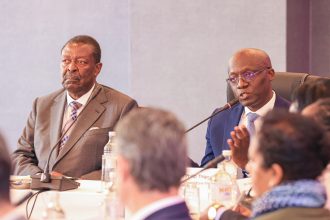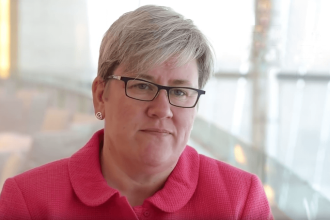By Lenah Bosibori
African Population and Health Research Center (APHRC) has called on communities and stakeholders in Arid and Semi-Arid areas(ASAL) and urban areas to utilize agroecology and organic farming to help in food security.
The experts say that the use of agroecology is a way of farming that works with nature, using local knowledge and natural methods instead of chemicals or artificial inputs that continue to destroy biodiversity. It focuses on growing food in a way that is sustainable in traditional farming, healthy for the environment, and beneficial for local communities.
Agroecology uses natural methods like crop rotation, composting, and planting a variety of crops to keep the land productive and healthy over time. It uses recycled materials, and the scientist says that if the technology is utilized in ASAL areas and the urban setups then more people will be food secure.
Speaking during the World Food Day commemorations in Nairobi, Dr Elizabeth Murage a Senior Research Scientist at APHRC said agroecology is a great approach for both people living in ASAL areas and urban areas. She adds that for Kenya and Africa to be food secure then it needs to involve the communities in decision-making and full utilization of agroecology.
“We want to include the community in decision making because we understand that they have a deep knowledge in Indigenous knowledge that can be used to be food secure,” said Murage.
Emmanuel Atamba, a food and farming systems expert in his part adds that World Food Day is a very important day in the world because all the stakeholders meet and share on how to improve food security both nationally and regionally.
He further notes that as an organization together with stakeholders, they want to eradicate hunger by 2030 as it is in the Sustainable Development Goals (SDG) 2030.
“It is very important to talk about food and the importance of food to everybody,” says Atamba.
He further notes that the effects of changes in weather patterns are pressing but they can’t be blamed for food insecurity. “We can’t blame climate change but let not be the reason as to why some people may not get food, The right to food is applied to everybody, let’s use our government resources to make sure that everybody has access to food,” he adds.
Globally, there are a lot of challenges but still, people need to feed according to him. “We have a lot of challenges across the world but we need to work hard and look for means to get food,” adds Atamba.
David Osogo, a researcher at APHRC, says that the food situation in Kenya and globally is not good. “From peoples’ experiences, many people are hungry, there is a lot of hunger in urban areas, some are areas we never thought to lack food,” says Osogo.
“We need to go back to food sovereignty and the traditional meals according to Osogo. “Let’s plant them and embrace eating traditional foods because we got lost when we shifted from our traditional foods to the new food that is not doing well,” he adds.
“We need to use indigenous knowledge and add it with the scientific data so that we can utilize all the available resources, let everybody think about food daily,” adds Osogo.




